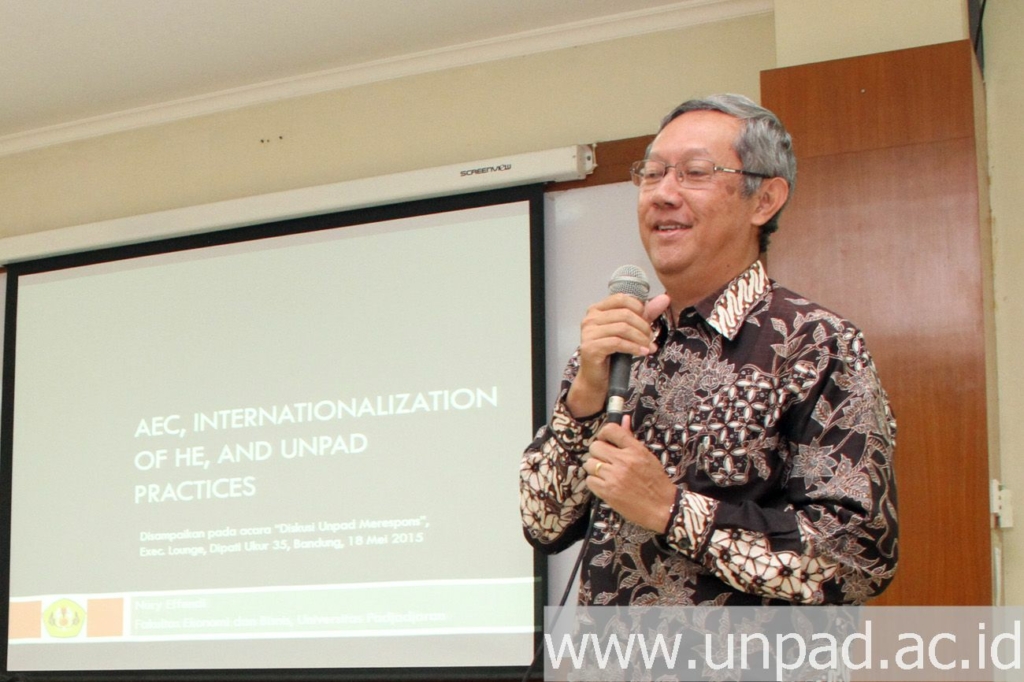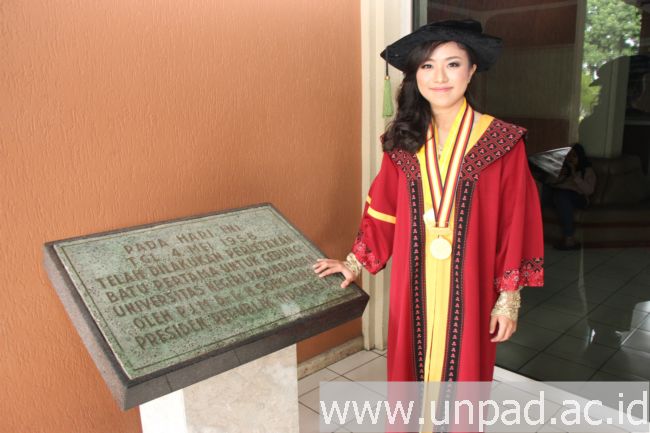Release

[unpad.ac.id, 7/16/2020] Professor of the Faculty of Economics and Business (FEB), Universitas Padjadjaran, Prof. Nury Effendi, M.A., PhD, was appointed as one of the members of the Bank Indonesia Supervision Agency (BSBI) for the period 2020-2023 by the House of Representatives of the Republic of Indonesia (DPR RI). The appointment was made in the 16th Plenary Meeting of the House of Representatives for the Session Period IV Year 2019/2020 in Jakarta, Tuesday (14/7).
Prof. Nury was elected as a member of BSBI along with 4 other experts, including M. Edhie Purnawan (academic of the Faculty of Economics and Business, Universitas Gadjah Mada), R. Nunung Nuryartono (Professor of the Faculty of Economics and Management, Institut Pertanian Bogor), Muhammad Nawir Messi (Member of KPPU), Mohammad Khusaini (academic of the Faculty of Economics and Business, Universitas Brawijaya).
“BSBI members are elected through a series of processes in parliament, such as fit and proper test, internal meetings, deliberations, and finally set in a plenary meeting,” Deputy Chairman of the House of Representatives Commission IX Amir Uskara said as quoted on the FEB Unpad page .
As elected members, all five will be tasked with conducting direct supervision of Bank Indonesia (BI) performance, which is primarily in increasing accountability, independence, transparency, and credibility.
In addition, the elected BSBI Members will also assist the House od Representatives in providing an overview of the policies taken, so that the House of Representative has proper instruments in supervising various tasks of BI to be better.
Encountered through an online interview last Thursday (2/7), Prof. Nury Effendi recounted his experience when participating in the fit and proper test conducted by Commission XI of the House of Representatives. He said that he had the opportunity to convey various matters related to current economic conditions, including government economic policies and their implications for the community.
“Through fit and proper test yesterday (30/6-red) in front of the board members, I had the opportunity to express my views on the economic conditions of the impact of Covid-19, fiscal and monetary policies and including my views on BI,” he said.
Furthermore, the Dean of FEB Unpad for the 2012-2018 period said that the impact of the Covid-19 pandemic was multidimensional. Besides health, this virus has had a significant impact in the economic, financial, social, agricultural, transportation and other fields. Globally, the IMF estimates global economic growth in 2020 is -4.9% while the World Bank is -5.2%.
Compared to the decline in economic growth in developed countries, Indonesia’s economic growth is relatively not too bad. One reason is because the policy response (mix) carried out by the government, especially the Ministry of Finance and Bank Indonesia, has been done quickly, credibly, and right on target.
Basically, Prof. Nury Effendi added that the policy mix carried out by the government primarily is Fiscal Policy and Monetary Policy that is expansionary in nature. The two policies are complementary. Nevertheless, the implementation in the field still has various obstacles, related to execution and realization issues.
Monetary policy undertaken by Bank Indonesia basically consists of lowering the benchmark interest rate, decreasing the Statutory Reserve Requirement (GWM), extending the tenure of State Securities (SBN), and providing hygienic money. On a more micro level, BI shares its role with the Financial Services Authority (OJK) in policy making.
In terms of magnitude, both fiscal and monetary policy by the Ministry of Finance and Bank Indonesia, are on an unusual scale. Related to the supervision process, this can lead to Moral Hazard problems. Therefore, the supervision process carried out by the DPR, BPK, and BSBI on BI becomes increasingly important.
According to Prof. Nury Effendi, BSBI is expected to be a navigator in overseeing the functions and roles of Bank Indonesia.
The contribution that can be made by BSBI in supervising the functions and roles of Bank Indonesia, both internally and the linkages between institutions and stakeholders is through strengthening the role of BI in the Financial System Stabilization Committee (KSSK), fiscal and monetary coordination, inflation control coordination and BI representative office.
“My conclusion on BI’s supervision must be done by the DPR, BPK, and BSBI. Two dimensions necessary to be the subject of supervision are the budget and policy authority. In the context of policy authority, BI can carry out policy maneuvers as long as it is in the corridor of its authority, “he concluded. (dkd) *


